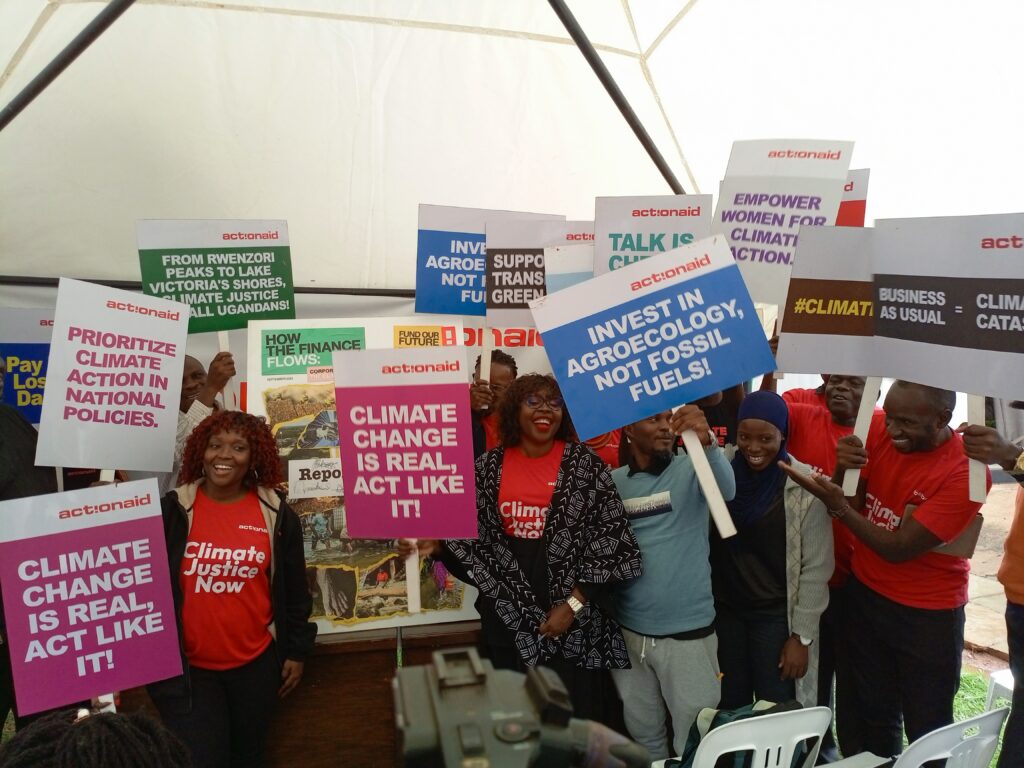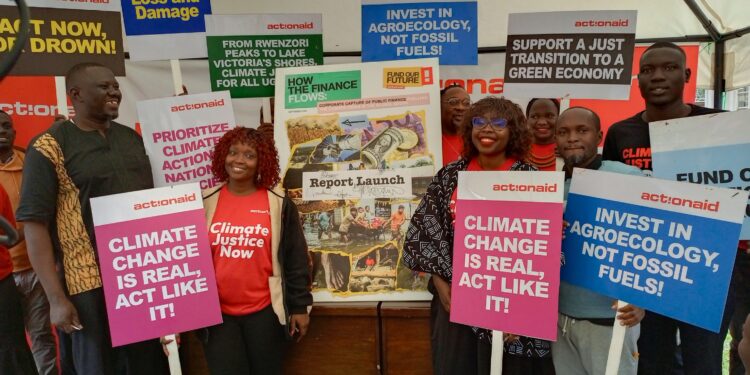Activists are calling for increased investment in clean energy resources and agroecology to tackle climate change issues in the Global South.
This call was made on Monday, September 23, 2024, during the launch of ActionAid’s flagship report “How The Finance Flows: Corporate Capture of Public Finance Fuelling The Climate Crisis in The Global South” at ActionAid International Uganda offices in Kansanga, Kampala.
The report reveals that climate-wrecking fossil fuel and industrial agriculture sectors are squeezing climate-hit countries for over US$600 billion in public subsidies every year.
Climate finance grants from the Global North for climate-hit countries are still grossly insufficient to support climate action and the necessary transitions, according to ActionAid International Uganda Executive Director, Xavier Ejoyi.

He said the report sheds light on how public funds in developing countries are being directed toward industries that exacerbate the climate crisis.
“The focus on Uganda, a country within the Global South, provides a localized lens through which to view this global issue. The report emphasizes need for financial redirection toward sustainable initiatives—clean energy technologies and agroecology both of which ActionAid International Uganda has been actively advocating for,” he noted.
He added: “These efforts are aimed at reducing greenhouse gas emissions, enhancing food security, and promoting environmental conservation.”
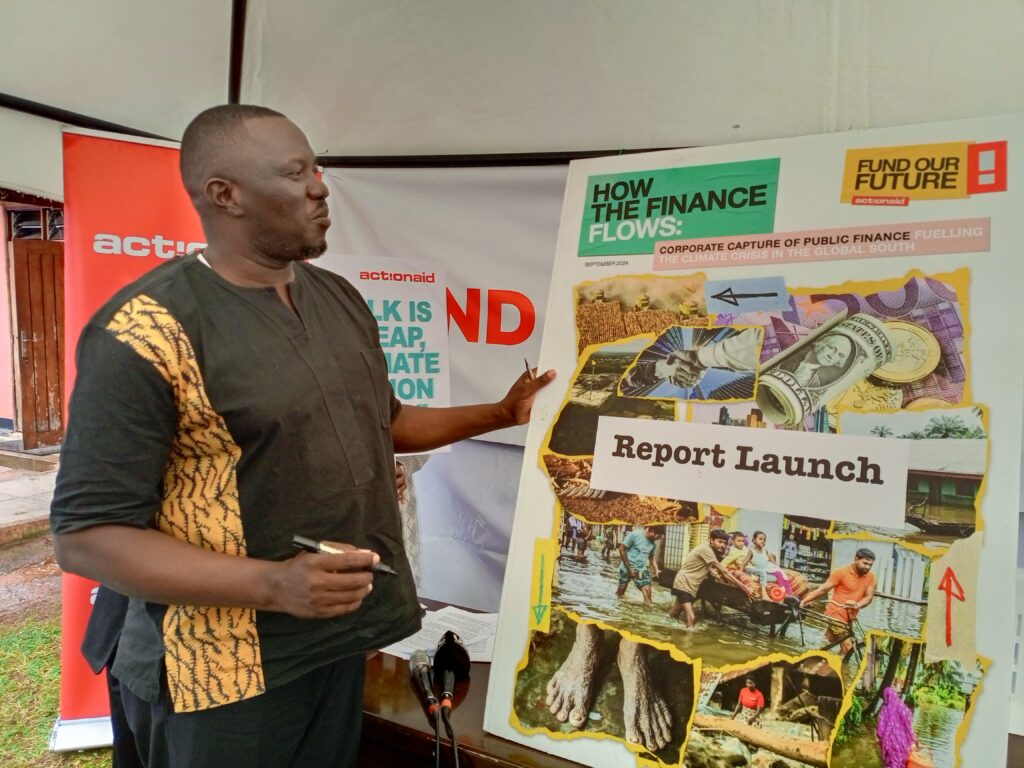
Ejoyi called on Ugandans and stakeholders to know that climate change is a justice issue that impacts different people differently.
The report examines the use of public funds in the Global south and it finds that the same industries that are causing the climate crisis and harming communities are also successfully squeezing Global South governments for the lion’s share of public finance.
The report highlights how multinational corporations like Shell and Bayer are benefiting disproportionately from public finance in the Global South, diverting resources away from climate action and adaptation efforts.
According to Ejoyi, human activities are increasing the climates crisis around the world, which are fossil fuel and industrial agriculture.
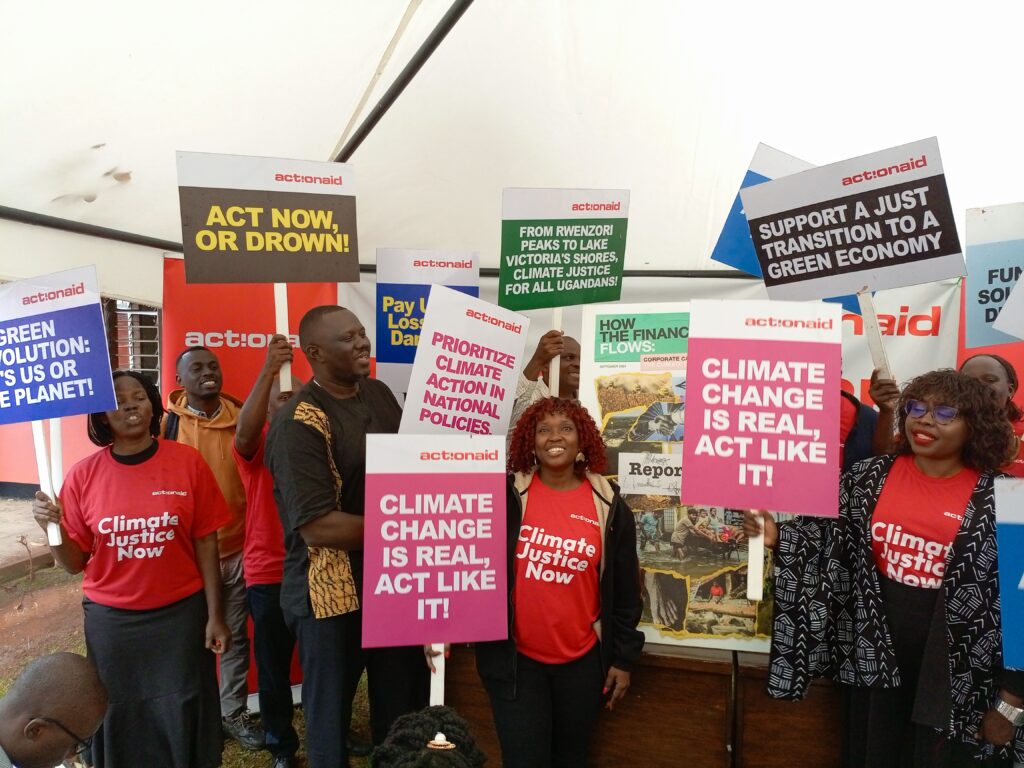
“These industries are aggrievating climate change yet get more funding. The most climate destroying industries are located in the global north, that’s why ActionAid took up the global analysis to get a global perspective,” noted Ejoyi.
“Uganda has an abundance of renewable energy sources and yet our people are still relying on harmful energy sources like charcoal that come from cutting down trees and worsening the climate crisis. A number of activities have been done to amplify the voices on climate change. They include the launch of the report in all the 47 countries that ActionAid works in,” he added.
The report further highlights that, across Global South countries, the fossil fuel sector has been receiving a shocking annual average of US$438.6 billion a year in publicly financed subsidies,between 2016 (when the Paris Agreement was signed) and 2023.
ActionAid International Uganda Programmes Director Mercy Grace Munduru, said ActionAid and partners have been advocating for the speedy implementation of the loss and damage fund.
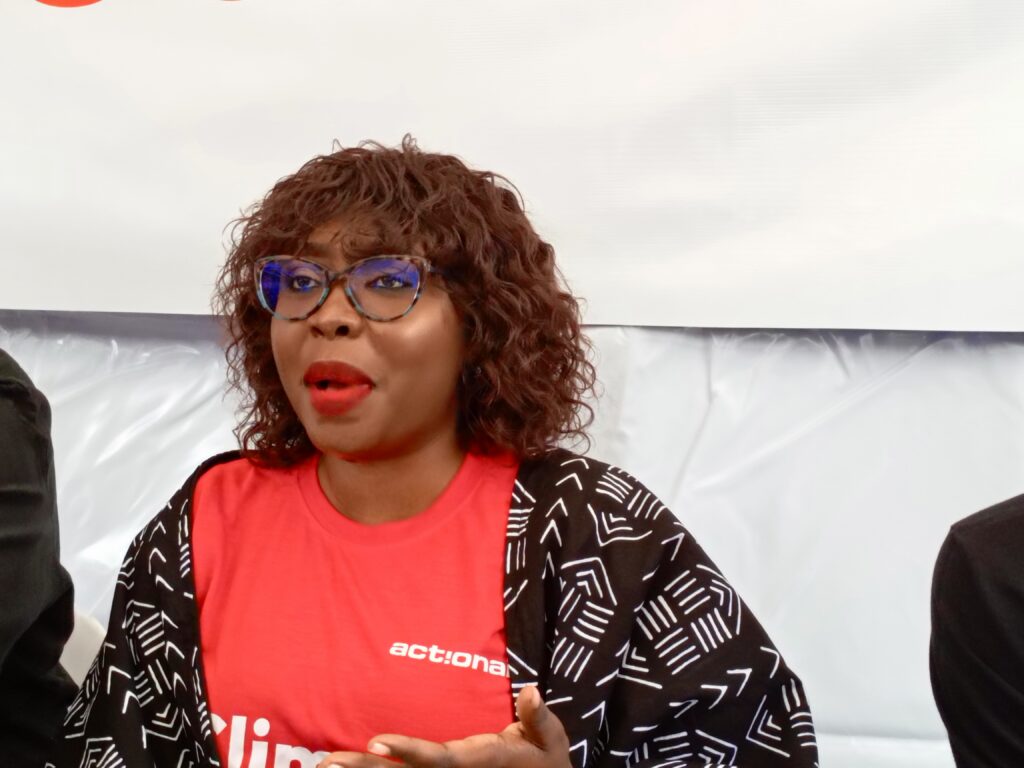
“It is about how public funds in developing countries are being directed towards industries that exacerbate climate crisis while solutions are getting way less funding,” she noted, adding:
“This is one of the core points of advocacy worldwide when it comes to climate change. We cannot talk about climate crisis without talking about money.”
According to her, public finance being fueled to fuel the climate crisis must be directed towards fighting fossil fuels.
“The push for the implementation of the Loss and Damage Fund, both globally and in Uganda, is a crucial step toward compensating communities that have been disproportionately affected by climate impacts,” stated Munduru.
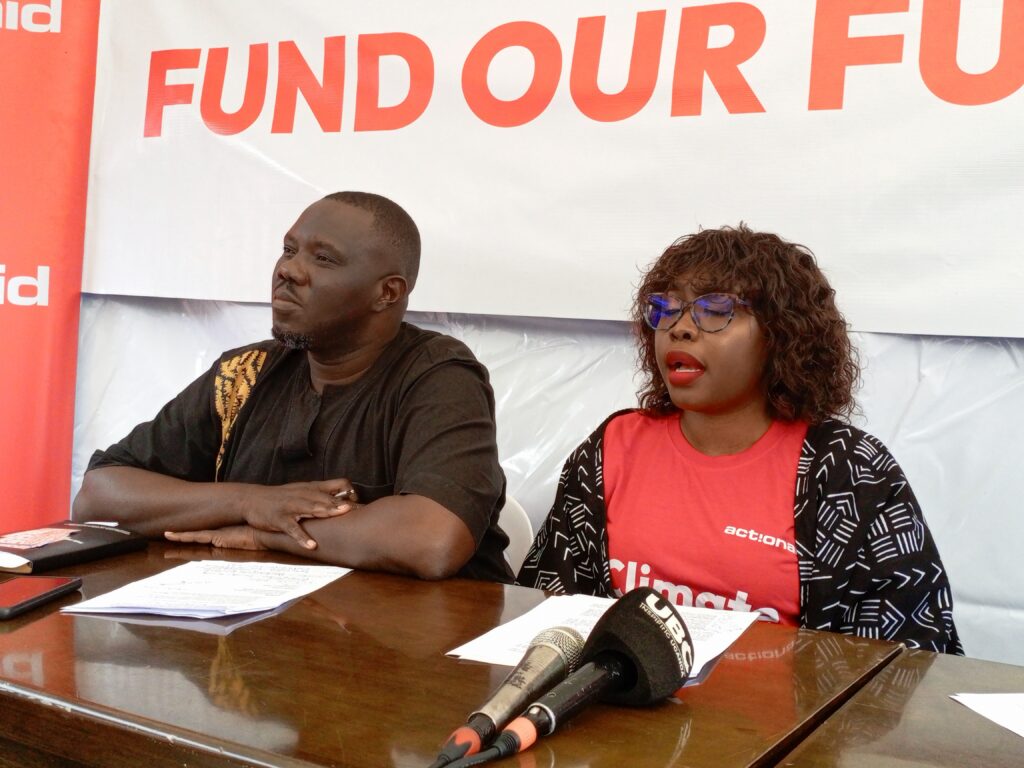
She added: “We demand for fairness and justice, climate finance should be directed to the right places.”
ActionAid International Uganda and partners under SPA II Loss and Damage including PELUM Uganda believe in supporting initiatives that build resilience against climate crisis.
Erick Kizito, the Programme Manager, Agroecology & Sustainable Natural Resources Management at Pelum Uganda, emphasized agroecology saying it both sustainable and works with nature.
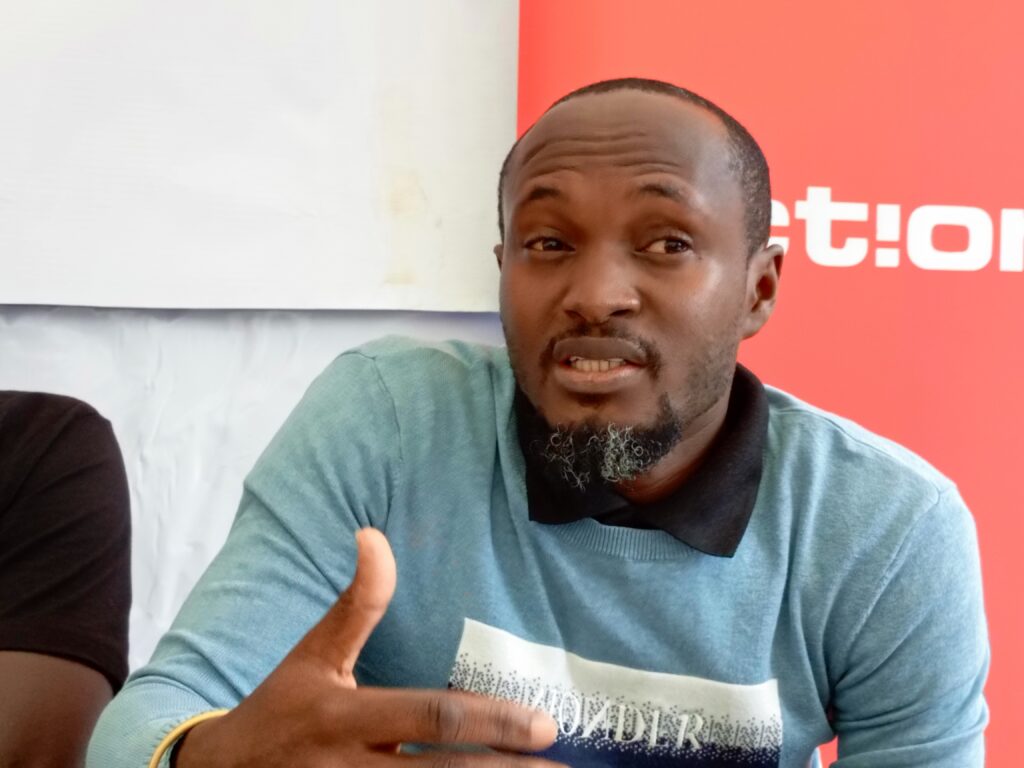
Kizito said monoculture (cultivation of a single crop in a given area) practiced by large corporations which, for example, grow sugarcanes results in the use of harmful pesticides and synthetic fertilizers which destroy the soil and the environment.
“We are also advocating for autonomy to allow farmers grow a variety of crops and eat what they want. Major crops that are important for food security and income generation in developing countries suffer from frequent and severe production constraints due to poor crop management and, increasingly, the impacts of climate change. We need to implement agroecological farming approaches to avoid these negative environmental impacts, while supplying more and safe food,” said Kizito.
